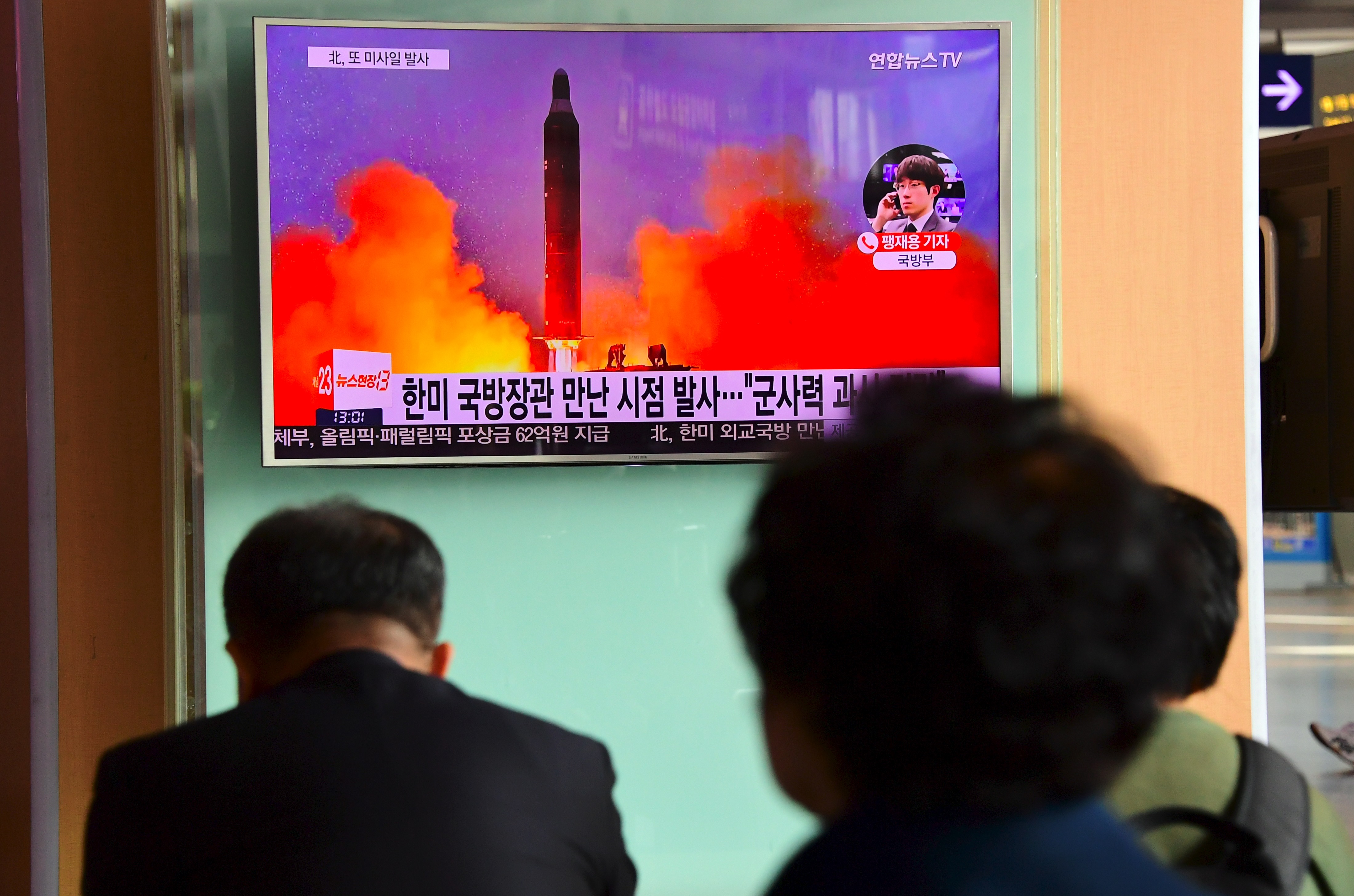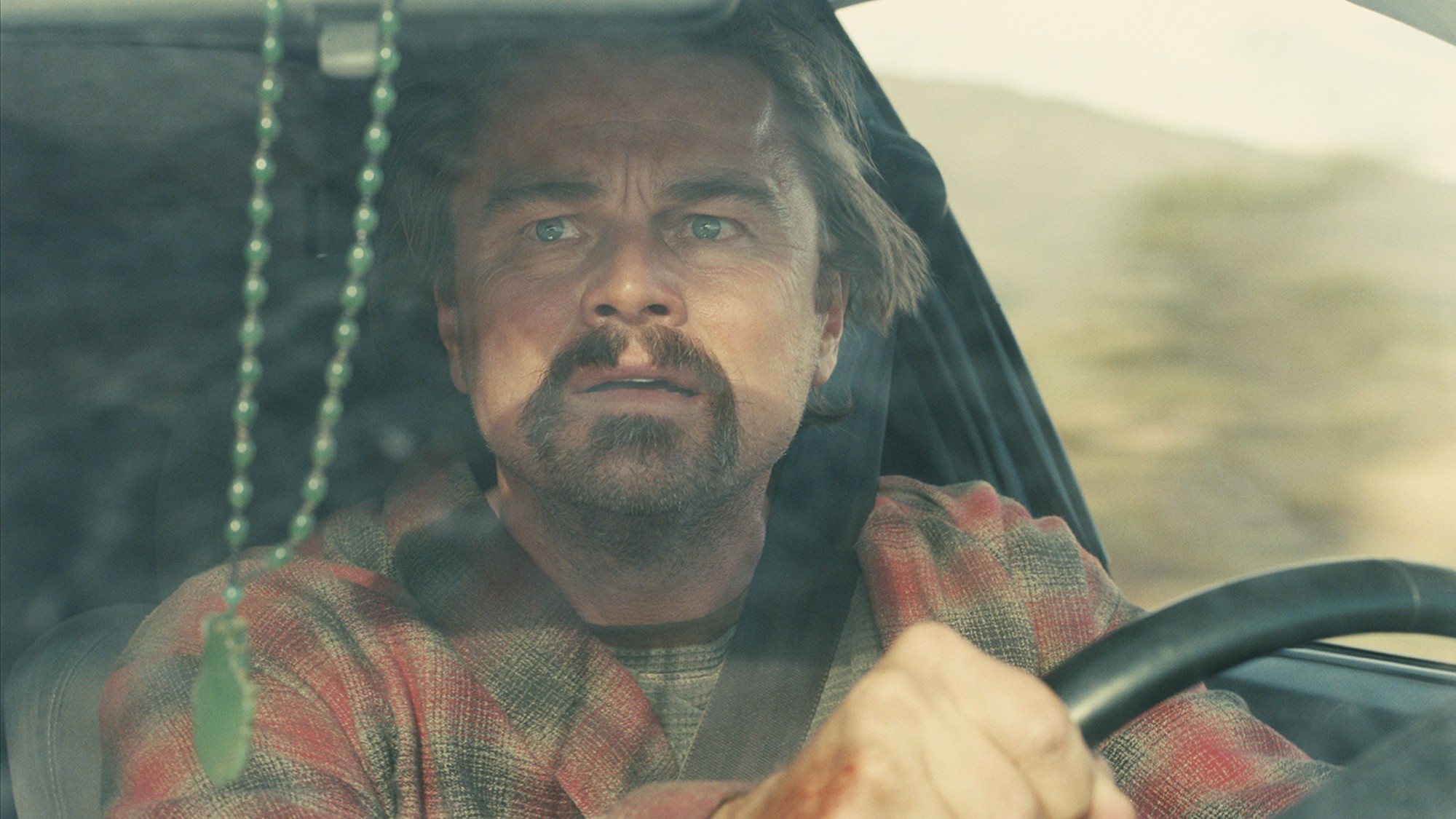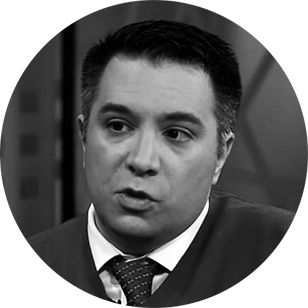How a preemptive strike on North Korea could end up killing millions
Here's how an attack could end


While North Korea might not have tested another nuclear weapon in recent days, tensions in Asia keep rising — and Washington is at least partially to blame.
First, it seems the Trump administration is ready to take the toughest of lines when it comes to dealing with the Hermit Kingdom. In an interview with The Washington Post's Josh Rogin, Vice President Pence declared that North Korea must give up its nuclear and missile programs in exchange for nothing, not even talks.
As the piece points out, it is tough to tell at this point if this was just rhetoric, maybe a trial balloon of sorts, or a new Trump administration policy. The vice president, however, seemed clear: "I think the path of negotiations with North Korea has been a colossal failure now for more than 25 years."
The Week
Escape your echo chamber. Get the facts behind the news, plus analysis from multiple perspectives.

Sign up for The Week's Free Newsletters
From our morning news briefing to a weekly Good News Newsletter, get the best of The Week delivered directly to your inbox.
From our morning news briefing to a weekly Good News Newsletter, get the best of The Week delivered directly to your inbox.
But besides demanding North Korea give up its only trump card — no pun intended — some are pushing the administration to go even further: to consider launching a preemptive strike on Pyongyang.
In an interview on the Today show, Sen. Lindsey Graham (R-S.C.) explained that if China would not stop North Korea from building a missile that can hit the U.S. homeland, Washington should use diplomacy, sanctions, and possibly "a military strike to stop their program."
On the surface, both comments in isolation might not draw oodles of attention. But taken together with the facts that Washington will not negotiate with North Korea and that the Hermit Kingdom already has, according to most estimates, 10-20 nuclear weapons, the comments are nothing short of apocalyptic.
In order to appreciate the ramifications of such a policy, let's game out what such ideas would look like in practice. Let us assume in the near future that Washington decides to push China hard into somehow "solving" the North Korea issue. Beijing, for its part, does cut back some food and fuel aid and does, to its credit, end all direct and indirect aid to Pyongyang's various military programs. North Korea's nuclear and missile programs continue to advance, but instead of racing towards a missile that can nuke America, the program is slowed dramatically.
A free daily email with the biggest news stories of the day – and the best features from TheWeek.com
The Trump administration is not satisfied. It threatens China, declaring that it must do more. But Beijing does not want to precipitate the possible downfall of the Kim dynasty. They fear Washington's wrath, but they're much more worried about millions of hungry North Koreans trying to seek refuge in China as well as potentially loose nuclear, chemical, and biological weapons. Combined with Beijing's other great concern — that Seoul would eventually unite the Korean peninsula under its control and continue its military alliance with the U.S. — China decides to take its chances with America.
Washington is now faced with a dilemma. They have made substantial progress on curtailing the speed in which Pyongyang can pair a nuclear warhead with a long-range missile — but the threat does remain. So the Trump administration leaks to the press that it is considering military action, and begins to move its best military assets into the region — and this time it's for real. President Trump orders B-2 bombers at the ready, with the ability to evade radar and drop large, bunker-buster bombs on North Korean nuclear facilities.
But North Korea is not to be deterred. It declares to the world that if the Trump administration decides to attack, Pyongyang will unload its full arsenal on South Korea and Japan. And considering North Korea's large military — thousands of artillery pieces, rocket launchers, 4,300 tanks, 1.1 million men under arms, 200,00 special forces, and a dangerous offensive cyber warfare capability — it is a threat that can't exactly be taken likely.
But Trump presses ahead. After moving three aircraft carrier battlegroups into the region and sending additional bombers and fighters to South Korea, Japan, and Guam, the administration warns North Korea that "it must decide whether it wants peace or war" and that "the Kim regime clearly can see that now we truly have all options on the table." Trump then goes on Twitter, declaring, "I hope Kim makes the right choice!"
Kim Jong Un, North Korea's third dynastic dictator, decides not to budge. He knows that if he gives up his nukes he has no leverage with America. And even worse, North Korea's political elites will see him as weak — and regime change could occur from within. He makes the only choice he can, and hopes Trump is bluffing.
Unfortunately for Kim, and Asia, war is now inevitable.
Trump orders a massive assault on North Korea's nuclear weapons and missile programs. The goal is simple: Destroy not only Pyongyang's ability to create nuclear weapons and advanced missiles, but the current stockpiles they have. Washington launches what can only be described as a "shock and awe" campaign on steroids: over 1,000 cruise missiles in the first few hours alone, B-2 bombers flying around the clock from bases in Missouri with stealth F-22 Raptors leading the way.
The assault itself, according to every metric conceivable, is a success. North Korea's nuclear and missile programs are set back a decade or more with most of Kim's nuclear weapons and missile launchers destroyed. Republicans and Democrats alike applaud President Trump's bold actions — acting when leaders of the past decided to do nothing.
There is however a catch to what seems like a resounding military success: The Kim regime's nuclear deterrent was not completely destroyed. One weapon, buried deep underground, survived the attack. And since North Korea's chemical and biological weapons were largely hidden underground as well, Kim has a terrible choice to make: Use the weapons he has now, or lose them in a potential second wave of strikes. He decides to use his full arsenal before it's too late.
What happens next is one of the worst military and human tragedies in history: Kim orders a nuclear strike on Seoul. While the missile lands four miles outside of the city thanks to a targeting error, millions of people are instantly killed with millions more poisoned by radioactive fallout. In a sheer panic, the millions of people who survive the attack rush south, creating a massive humanitarian crisis of the worst magnitude.
From here, things get even worse. Kim launches dozens of chemical and biological weapons at South Korea and Japan. Sarin, VX ,and other toxins are lobbed at Tokyo, Pusan, and other large cities. Millions of people try to flee the impacted areas just as in Seoul — creating a panic not seen since World War II.
In just a few hours, hell is unleashed on the Korean peninsula. And while the United States and its allies would eventually win any war against North Korea, it is clear from the above — far from what could be the most extreme of examples of a Second Korean War — what damage the Kim regime could do in a military confrontation. Indeed, the price of such a victory could be millions of people dead and large sections of Korea rendered uninhabitable for decades, if not longer.
Yet, there is another path forward. It seems due time for President Trump to remember his own words from the campaign when it comes to talking to North Korea — and maybe even to Kim Jong Un directly: "I would speak to him. I would have no problem speaking to him."
No one wants to talk to the dictator of a nation with over 200,000 people or more in prison camps — but an attack that could lead to a conflict where millions could die in a nuclear war is far worse. The stakes are too great to at least not consider it.
Harry J. Kazianis is director of defense studies at the Center for the National Interest, founded by former U.S. President Richard M. Nixon.
-
 The best homes of the year
The best homes of the yearFeature Featuring a former helicopter engine repair workshop in Washington, D.C. and high-rise living in San Francisco
-
 Critics’ choice: The year’s top 10 movies
Critics’ choice: The year’s top 10 moviesFeature ‘One Battle After Another’ and ‘It Was Just an Accident’ stand out
-
 The small Caribbean island courting crypto billions
The small Caribbean island courting crypto billionsUnder the Radar Crypto mogul Olivier Janssens plans to create a libertarian utopia on Nevis
-
 How Bulgaria’s government fell amid mass protests
How Bulgaria’s government fell amid mass protestsThe Explainer The country’s prime minister resigned as part of the fallout
-
 Femicide: Italy’s newest crime
Femicide: Italy’s newest crimeThe Explainer Landmark law to criminalise murder of a woman as an ‘act of hatred’ or ‘subjugation’ but critics say Italy is still deeply patriarchal
-
 Brazil’s Bolsonaro behind bars after appeals run out
Brazil’s Bolsonaro behind bars after appeals run outSpeed Read He will serve 27 years in prison
-
 Americans traveling abroad face renewed criticism in the Trump era
Americans traveling abroad face renewed criticism in the Trump eraThe Explainer Some of Trump’s behavior has Americans being questioned
-
 Nigeria confused by Trump invasion threat
Nigeria confused by Trump invasion threatSpeed Read Trump has claimed the country is persecuting Christians
-
 Sanae Takaichi: Japan’s Iron Lady set to be the country’s first woman prime minister
Sanae Takaichi: Japan’s Iron Lady set to be the country’s first woman prime ministerIn the Spotlight Takaichi is a member of Japan’s conservative, nationalist Liberal Democratic Party
-
 Russia is ‘helping China’ prepare for an invasion of Taiwan
Russia is ‘helping China’ prepare for an invasion of TaiwanIn the Spotlight Russia is reportedly allowing China access to military training
-
 Interpol arrests hundreds in Africa-wide sextortion crackdown
Interpol arrests hundreds in Africa-wide sextortion crackdownIN THE SPOTLIGHT A series of stings disrupts major cybercrime operations as law enforcement estimates millions in losses from schemes designed to prey on lonely users
